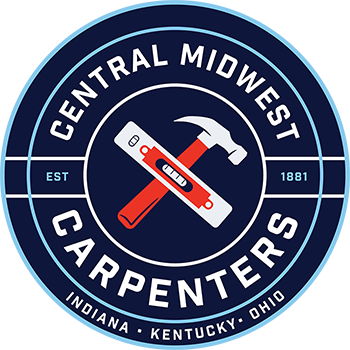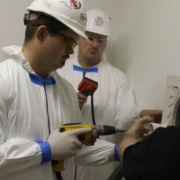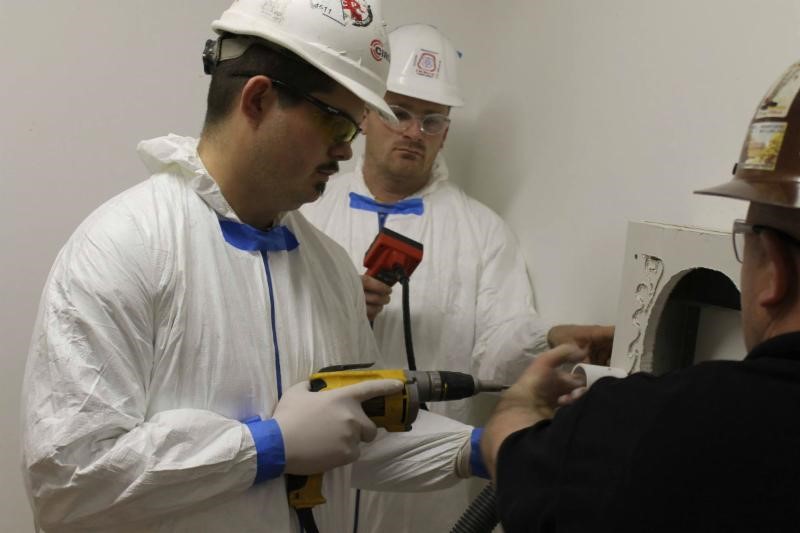NEW YORK – Attorney General Eric T. Schneiderman and New York City Department of Investigation Commissioner Mark G. Peters announced on Friday, March 18, 2016, the guilty pleas of Sergio Raymundo, 28, and his New Paltz-based construction company Lalo Drywall, Inc.
Both defendants pleaded guilty in Manhattan Supreme Court and must pay $793,509.60 in restitution and $83,143.76 in unpaid unemployment contributions due to the New York State Department of Labor, Unemployment Insurance Division.
Raymundo and Lalo Drywall, Inc. cheated eight workers at a Harlem housing project out of approximately $800,000.00 in wages during a 17-month period, and attempted to conceal the underpayments by signing false checks drawn on the company’s account indicating that employees on the job were paid properly under the law. However, those checks were never actually given to the workers.
“No matter how creative they become in their illegal schemes, dishonest contractors will be held accountable. This guilty plea demonstrates that my office will continue to take aggressive action against public works contractors who cheat their employees out of proper wages and who abuse taxpayer money” said Attorney General Schneiderman. “Workers must be paid for their labor, and my office is committed to ensuring that workers who are cheated out of wages are rightfully compensated.”
NYC Department of Investigation Commissioner Mark G. Peters said, “The pleas by these defendants, and the restitution being awarded to workers who were cheated out of nearly $800,000 in rightful pay, demonstrates that wage theft at public works projects is a serious crime with consequences. DOI will continue to pursue and expose employers who attempt to steal workers hard-earned wages. I thank the Attorney General and our partner agencies for their efforts in uncovering and prosecuting these crimes.”
Sergio Raymundo pleaded guilty to one count of Falsifying Business Records in the First Degree under New York State’s Penal Law, a class E felony, as well as to one count of Failure to Pay Wages under New York State’s Labor Law, an unclassified misdemeanor.
With his plea, Raymundo paid $350,000.00 to the Office of the Attorney General (OAG). representing restitution and unpaid unemployment contributions by Lalo Drywall, Inc. At sentencing, under the plea agreement, Raymundo must pay another $210,000.00 representing an additional amount of restitution and unpaid unemployment contributions. The remaining $318,150.56 in restitution and unpaid unemployment contributions will be paid during Raymundo’ post-conviction sentence.
Lalo Drywall, Inc. pleaded guilty to one count of Falsifying Business Records in the First Degree, a class E felony, and will be sentenced to a conditional discharge. Under the plea agreements, both Raymundo and Lalo Drywall, Inc. are also barred from bidding on or being awarded any public works contracts in New York State for the next 5 years.
This plea stemmed from the April 2015 arrests of five subcontractors as part of an ongoing focus by Attorney General Eric T. Schneiderman and New York City Department of Investigation Commissioner Mark G. Peters on widespread allegations of wage theft at public works projects in New York City. One of the subcontractors was Lalo Drywall, Inc., which was investigated for underpayment schemes that took place between April 10, 2013 and August 27, 2014 at the New York City Department of Housing Preservation and Development’s (HPD) Sugar Hill Houses, a mixed-use, commercial and low-income residential project in Harlem, which was subject to prevailing wage requirements. Federal and state prevailing wage laws seek to ensure that government contractors pay wages and benefits that are comparable to the local norms for a given trade, typically well above the state and federal minimum wage.
The case was investigated by Deputy Inspector General David Jordan and Assistant Inspector General Ondie Frederick under the supervision of Inspector General Jessica Heegan. The Department of Investigation’s effort to combat prevailing wage violations was overseen by Senior Associate Commissioner Michael Carroll and Associate Commissioner William Jorgenson.
Source: Hudson Valley News Network



